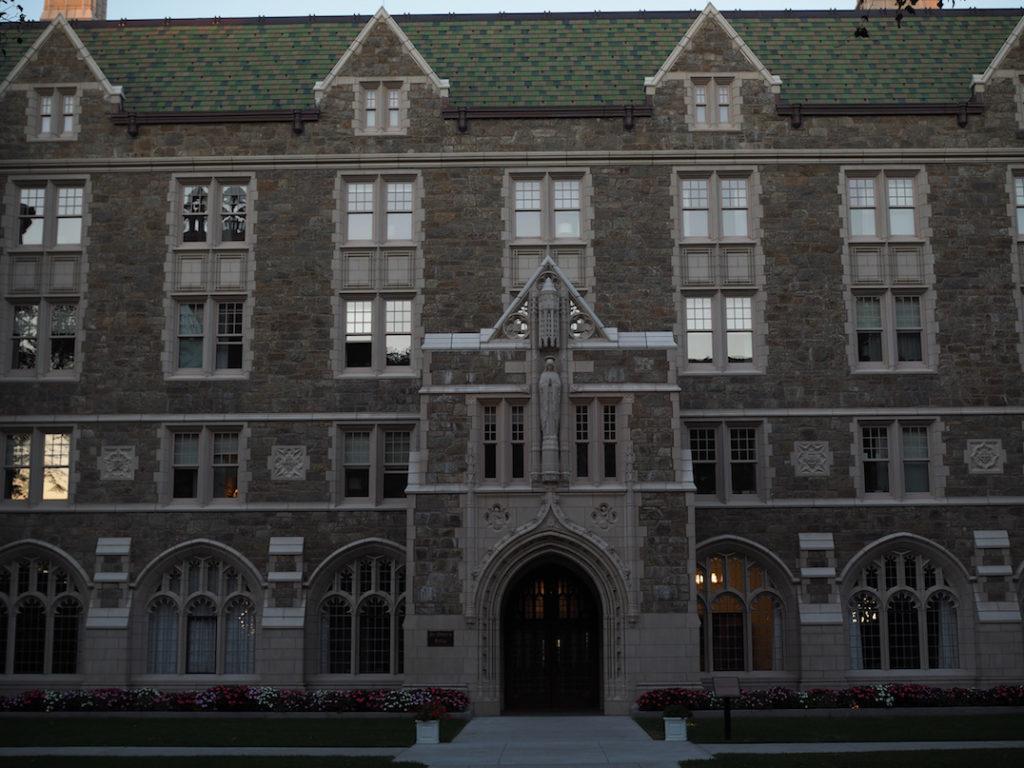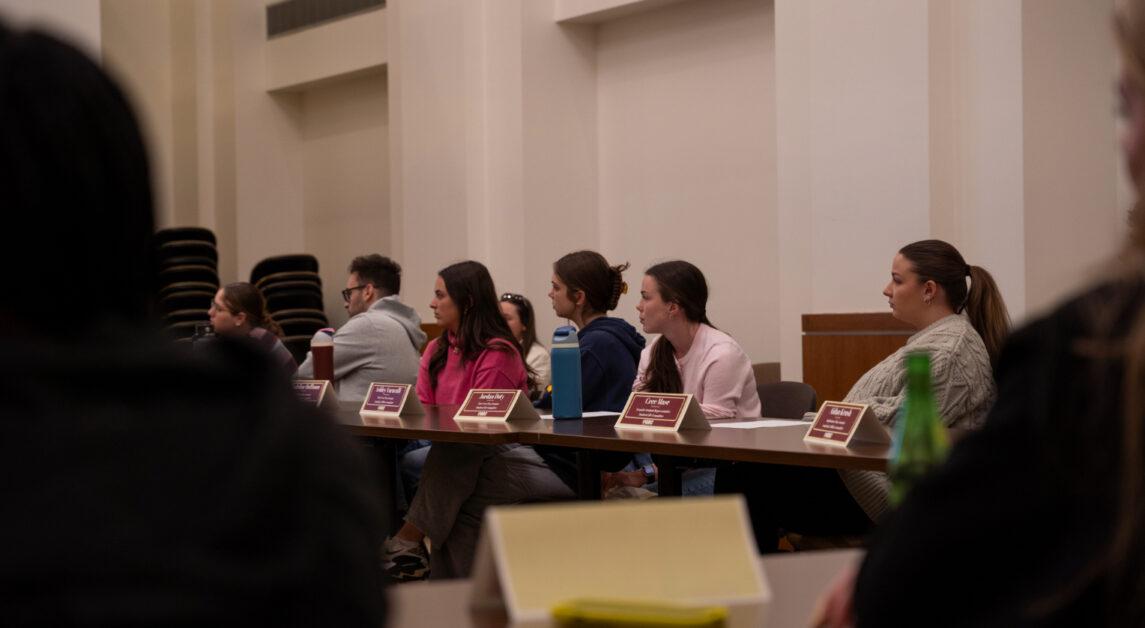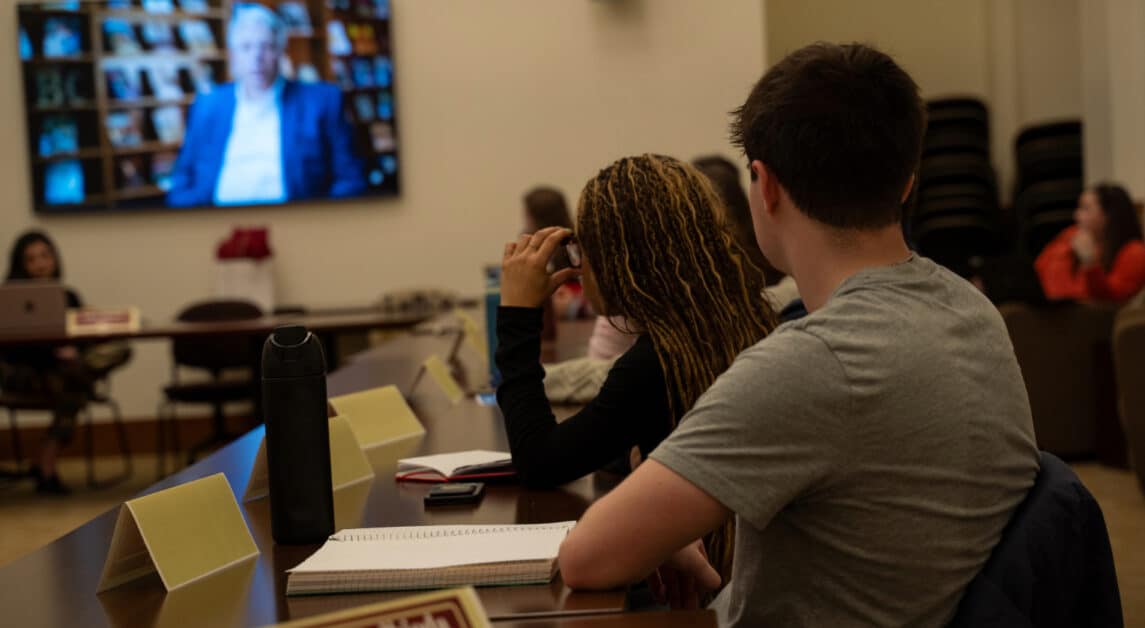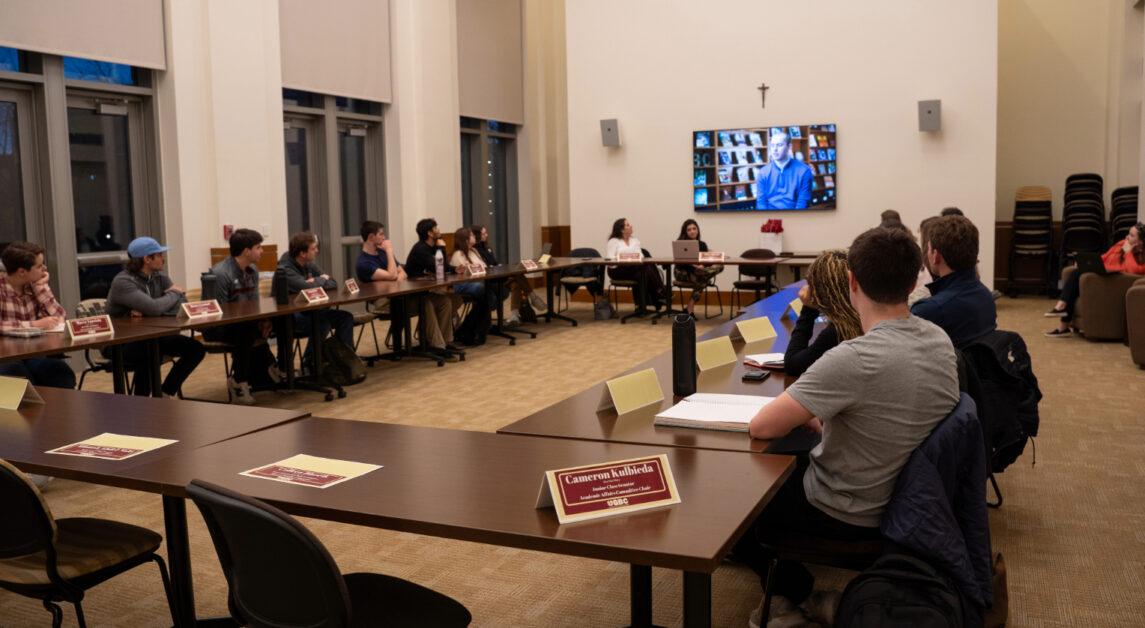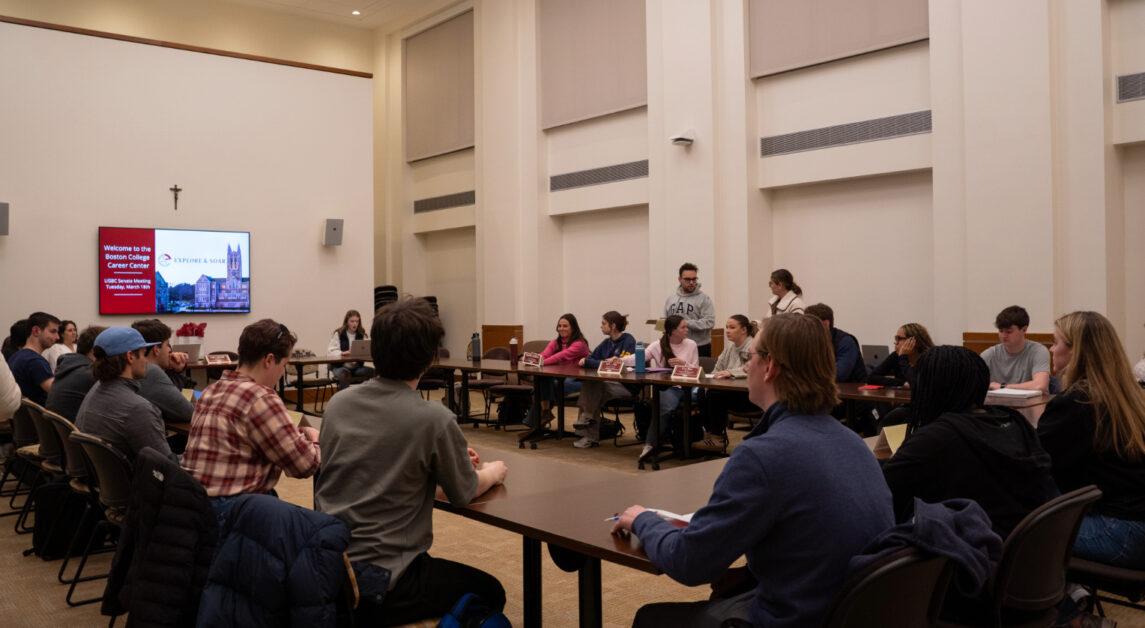Boston College computer science professor Vahid Montazerhodjat left the University on March 8, mid-semester, to pursue other academic opportunities, according to an email Sergio Alvarez, chair of the computer science department, wrote to computer science majors and students in Montazerhodjat’s classes. Montazerhodjat was a tenure-track professor, originally from Iran and MIT educated, and was one of the most well-reviewed and liked professors in the department.
“Vahid was easily one of the best professors I’ve ever had my entire life,” said Jolene Lozano, MCAS ’21. “Initially I didn’t want to become a computer science major because as a minority in the tech field, I’ve always felt I wasn’t good enough. But I ended up taking [Computer Science I] with him, and he was easily the most inclusive and welcoming professor I’ve ever had.”
Alvarez did not respond for a request for further comment. Dean of the Morrissey College of Arts and Sciences Rev. Gregory Kalscheur, S.J. declined to comment, citing University policy against commenting on the comings and goings of faculty members.
Montazerhodjat’s departure poses further problems for the already embattled computer science department. Since 2017, the department has dealt with a massive influx of new majors, requiring an increase in tenure-track hires. Unfortunately, that issue still has not been fixed, due to the inherent difficulties of making mass hirings in a single department in the short-term.
The computer science department has reached the point that, due to being so understaffed both at the faculty and staff level, it briefly had to stop taking new majors in order to concentrate on course management. In a previous interview with The Heights, Alvarez noted that there were nine “core faculty members”—three tenured senior faculty, four junior faculty members who are yet to apply for tenure, and two non-tenure-track faculty members. The department also has hired four visiting faculty members, who can be kept on for three years at a time.
Montazerhodjat was a junior tenure-track faculty member who, according to students, provided a lively, highly educated perspective on approaching computer science both while at BC and beyond.
Jay Agrawal, MCAS ’20, said that the reason students were so eager to take Montazerhodjat’s classes was because he promoted computer science outside the classroom, which at times was a hard resource to find given how stretched the department faculty already is.
“Vahid wanted students to be involved in CS outside the classroom, which you see in the information system department as well,” Agrawal said.
He noted how helpful it was to have a computer science link to hackathon events, in addition to information systems professors’ aid, when that support could be so scarce during semesters depending on uncontrollable outside factors.
Lozano said that Montazerhodjat was a big part of the reason the computer science department has risen to a top-10 major at the University. Upon his departure, Lozano explained that majors assembled over 60 handwritten letters to present to Montazerhodjat thanking him for his support and commitment to students.
“I know very very few teachers who have had that impact on students,” she said. “On top of that, Vahid was also an immigrant, a minority teacher. That was something a lot of students could relate to as well. Aside from all the CS questions, people could also talk to him about personal issues they were having as well.”
Lozano and Agrawal praised Montazerhodjat’s approach to aiding students as they tried to understand many of the more abstract concepts of computer science. Lozano said that Montazerhodjat never considered her questions stupid, despite some other professors “looking down” on some of the speed bumps she would hit over the course of a semester.
Lozano also noted that students always recommended Montazerhodjat, even if they struggled or didn’t score well on tests. She explained that when Montazerhodjat announced in his classes that he was leaving, students texted her that you could hear a pin drop in the room, before some students burst into tears.
“It just kind of hurt to see someone who made such a great impact on me just go away like that,” Lozano said. “For that entire week, it was very mentally distressing for a lot of students because we were like, ‘What happened within the department that made him leave?’
“Knowing him for three semesters in a row, he would not have left so abruptly if there had not been a serious problem in his department, and I think that’s evident to a lot of students here … I thought [the department] lost its biggest asset.”
Featured Image by Celine Lim / Heights Editor

